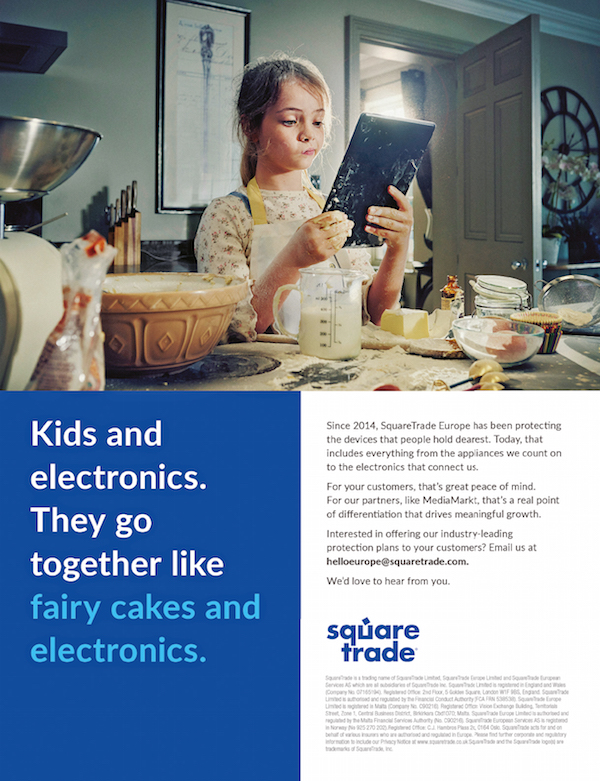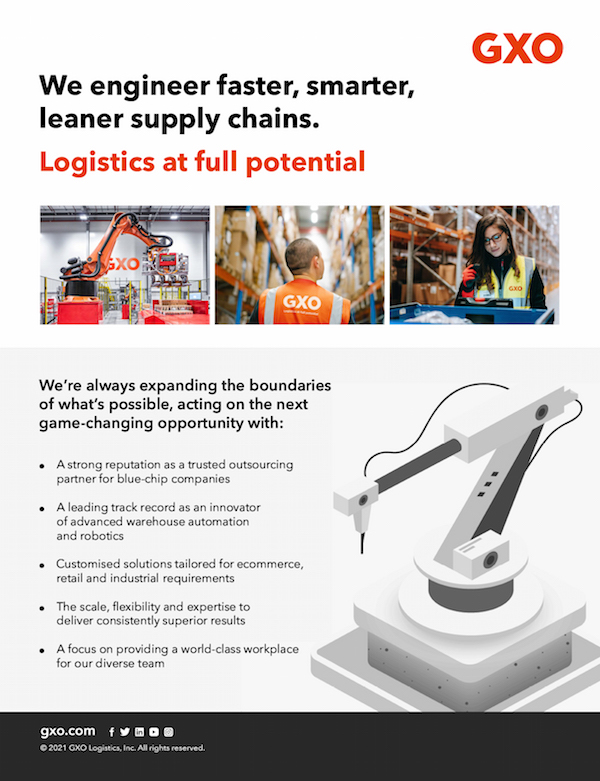MediaMarkt became the largest consumer electronics retailer in Europe with the help of bold, provocative advertising offering no-nonsense, trustworthy deals. Founded in 1979 in Germany, the chain now has more than 850 stores in 13 countries.
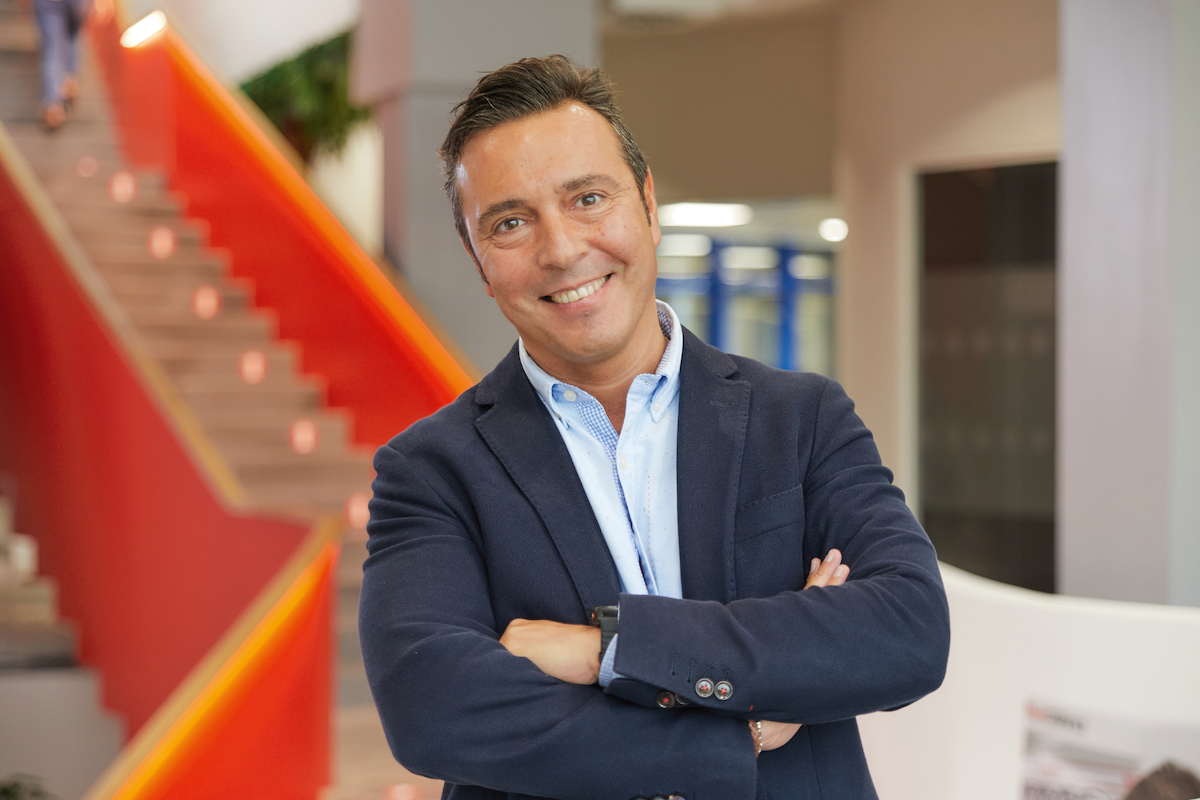
Its red spiral logo is well-known from Austria, Poland and Hungary to Italy, Turkey, the Netherlands and Greece. The company serves as a one-stop shop for customers seeking anything electrical or electronic, offering an average product portfolio of 45,000 different items.
Its sales floors are as large as 10,000 square metres and stocked with portable speakers, game consoles, laptops, kitchen appliances, light bulbs, power adaptors, phones, fans, DJ decks, batteries, cables, and just about anything else you could think of.
Having established itself as a trusted brand, MediaMarkt is now on a mission to deepen its connections with consumers, expanding its offerings in services and aftercare, and diversifying its sales channels in a bid to create long-term relationships.
The team at MediaMarkt Iberia, which covers 106 stores in Spain and Portugal, is leading the charge in this respect. Drawn by what he saw as an enormous opportunity to help drive further digitalisation, Alberto Álvarez Ayuso became General Managing Director for Iberia in 2019 after almost two decades working for the company.
Alberto first joined MediaMarkt in 2001 as a store manager in Asturias, in the northern Spanish municipality of Siero. Since then, he has assumed various different responsibilities, from Regional Director for the north and centre of Spain, to COO of MediaMarkt Iberia. He became CEO of MediaMarkt Sweden in 2018 before being appointed General Managing Director for Iberia.
This was an amazing challenge, to help the company move from a transactional relationship with its customers to more of a long-term one.
“I assumed this most recent position with great enthusiasm because we are now undergoing an extremely important digital transformation at the company,” he shares. “So for me, this was an amazing challenge, to help the company move from a transactional relationship with its customers to more of a long-term one.
“The opportunity and the challenge were very clear to me: to transform this company into a digital and omnichannel company. This is already proving to be such a great opportunity, even as we are in the middle of this transformation. We were a classic retailer selling only consumer electronic products, and we’ve now moved into also selling services and solutions.”
Tailored tech solutions
A key date in the company’s transformation was 14 March 2020, when the leadership team decided to close all of MediaMarkt Iberia’s stores as the COVID-19 virus swept through Europe. “It was a difficult decision, but it allowed us to speed up this process of digital transformation and our offerings to our customers,” Alberto says.
“We basically transformed all of our stores into logistics centres, and we delivered from these logistics centres to customers in Spanish villages and every Spanish city within a few days. It was a massive amount of work, but this really accelerated our transformation. We did in five months what would have taken five years.”
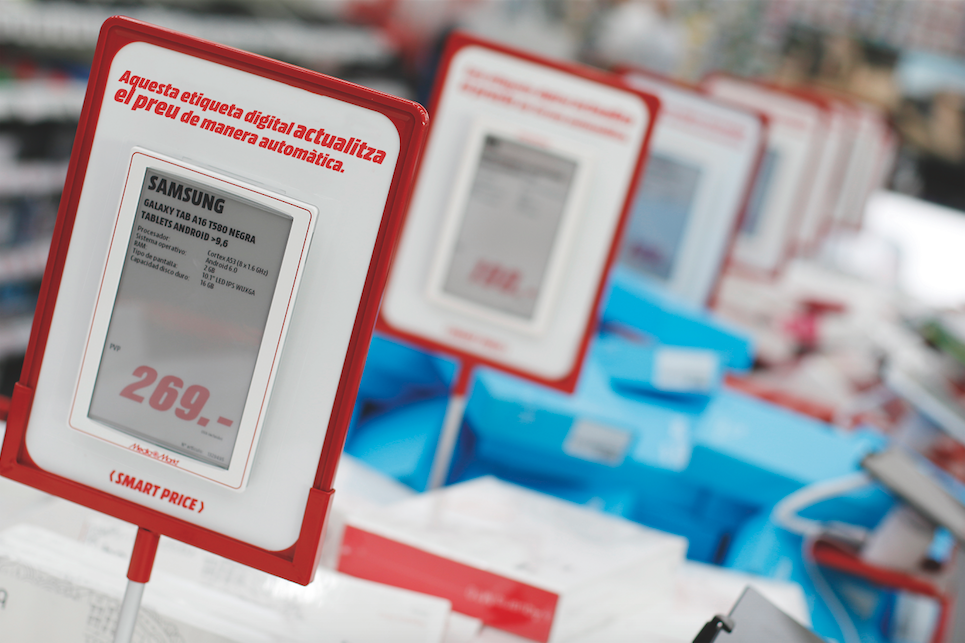
Thanks to the fact that it was forced to go digital, 50% of the company’s digital business is now done through its stores, meaning the products are much closer to the customer than when online orders were fulfilled mostly by its warehouses.
“For example, when a customer from Seville is ordering goods, instead of it being delivered from our central warehouse in Pinto, it’s delivered by the Seville store, the closest one,” Alberto explains. “We are now able to do click and collect in less than half an hour, and we were able to grow traffic on our website by 50% and increase the conversion rate.”
Moreover, MediaMarkt Iberia is leading the way within the MediaMarktSaturn group in terms of offering services and solutions to customers, rather than just selling them products. The company’s mission is to be the trusted first choice retailer for tailored tech solutions. “We are the first country to do this,” Alberto says.
“We are the blueprint regarding services and solutions for the rest of the countries in the group. Because of the crisis in 2020, we had to develop another value-add on top of products, and this is why we are creating and building new services and solutions for the customer.”
The company’s after-sales offerings include help with assembling and installing televisions, technical assistance, training workshops, financing, extended warranties and repair services. It even offers a service for disposing of old devices. “In Spain, we are now selling more services and solutions than any competitor,” Alberto beams.
“We are also a role model for the rest of the group, and this is our lever in order to maintain our leading position in Spain. We want to become a loved brand and offer the customer a unique value proposition. This is why we bought 17 new stores recently. We believe in proximity, in convenience, in the last mile and in immediacy for customers.”
We basically transformed all of our stores into logistics centres … we did in five months what would have taken five years.
Alberto, as with all the other CEOs in the group, is operating with three key pillars in mind: growth, quality and speed. These pillars are supported by three main values: respect for the team, a focus on customers and caring about the legacy the company has in wider society.
“We are the only consumer electronics company in Spain that is working with more than 7,000 people, and we are complete specialists regarding consumer electronics,” he says. “No-one else in Spain can say that they have more than 7,000 people working only in consumer electronics. This is our main competitive advantage. We really value our people.”
A digital society
To further deepen its relationships with customers, the company is working on dramatically expanding its offerings beyond what it is traditionally known for. By 2025, MediaMarkt Iberia plans to roll out brand-new product categories in health and wellness, which will include dental and healthcare plans.
Another vital part of this pivot to more intimate relationships with customers will involve positioning the company to be increasingly socially responsible and ecologically sustainable. “We are now in a digital society, and we want to promote the ethical, responsible and transparent use of data,” Alberto insists.
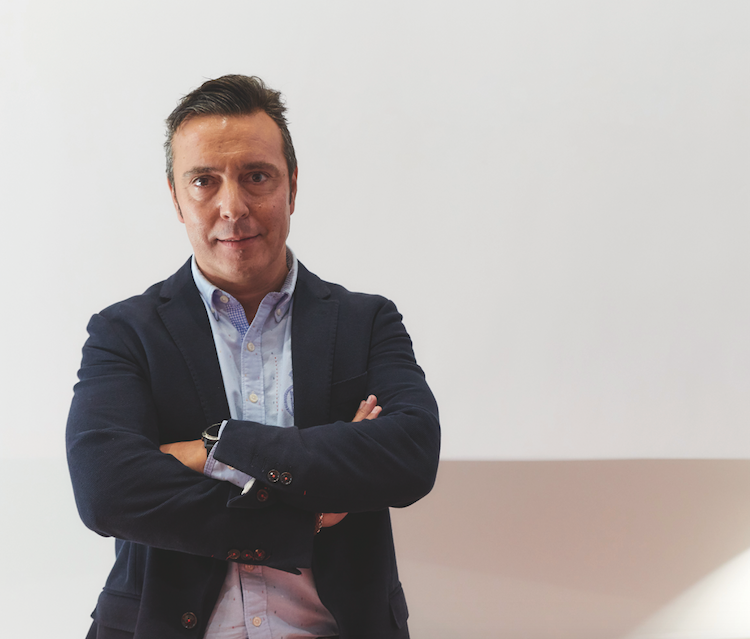
“We believe in long-term value, so for us, loyalty, trust and long-term relationships with clients will be key.” One of MediaMarkt Iberia’s social outreach efforts involves partnering with charities to help poorer and more vulnerable people get access to key technologies.
“I think companies that are not committed to giving back to our society are not going to survive. We are fully committed to giving this society a better future,” he says. “Our main goal is to deliver technology for the customer, but we want to consider the people who do not have the opportunity to pay for this technology. So we’ve collaborated with a number of foundations in order to minimise the digital gap.”
Expanding into health and wellness is not the company’s only goal for 2025. Alberto is also aiming to capture 25% of market share for consumer electronics in Spain by then. He also aims to open another 44 stores, bringing the total under his remit to 150, and to raise the number of members in the company’s loyalty program, the MediaMarkt Club, to 10 million.
As Alberto strives for these targets, he also sees areas where the company can improve in the coming years. “In order to become an operationally excellent company, I would say there are two areas to focus on: the IT part and the logistics part,” he reflects.
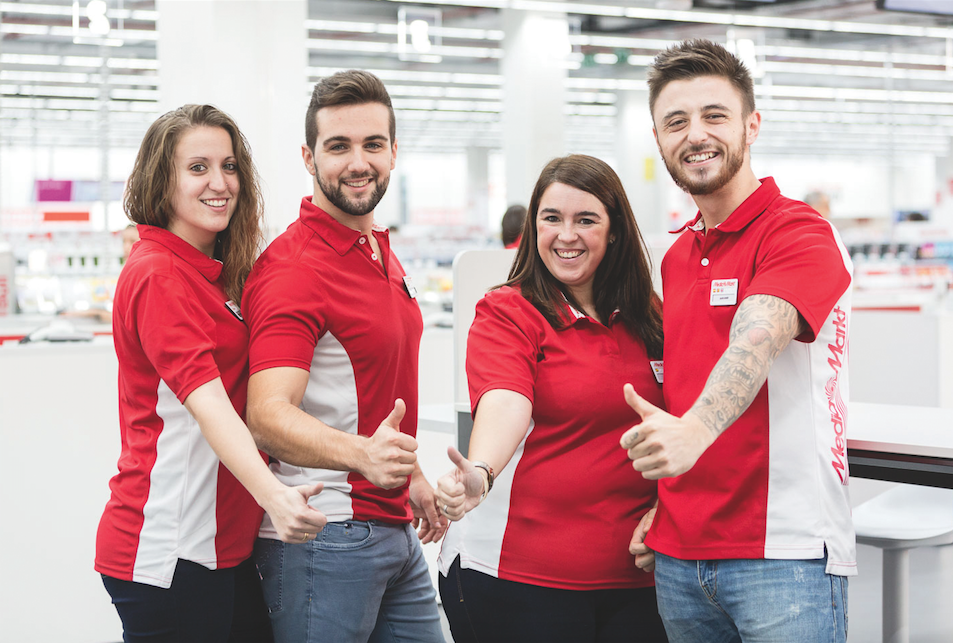
“We are fully committed to becoming excellent. We are going step by step down this path. Two years ago, we were working with only one carrier for all our parcels. Now, we are working with 11 carriers in order to reach excellence in the last mile.
“As for IT, this is a digital society, and during this transformation, we need the right platform and the right IT system. I think these areas will be critical over the next three years.”
Accurate forecasts
Alberto has worked hard to build strong supplier relationships in recent years, which will lay the foundations for success in coming years. Strengthening these bonds has become even more important as the number of suppliers in the market has dwindled.
We need to be serious and professional with suppliers, committing to take the quantities of goods that we are forecasting several months in advance.
“This point is key because supplier numbers have reduced a lot in the last few years. There’s a real concentration of the number of operators,” he says. “So you need to build a good relationship with each one.”
To do so, Alberto has put a lot of emphasis on providing suppliers with the most accurate possible forecasts about what goods will be needed from them and in which quantities, rather than asking for less or more at the last minute, when demand or other factors change.
Giving partners a degree of certainty in such uncertain times is valuable to MediaMarkt’s suppliers, and shows the company’s dedication to building long-term relationships. “We do a real forecast,” Alberto reveals.
“I learned working in a Nordic country, Sweden, that for the supplier, it’s very important to do a good forecast, even more so during a pandemic. We need to be serious and professional with suppliers, committing to take the quantities of goods that we are forecasting several months in advance. This is our way of creating a good relationship with them.”
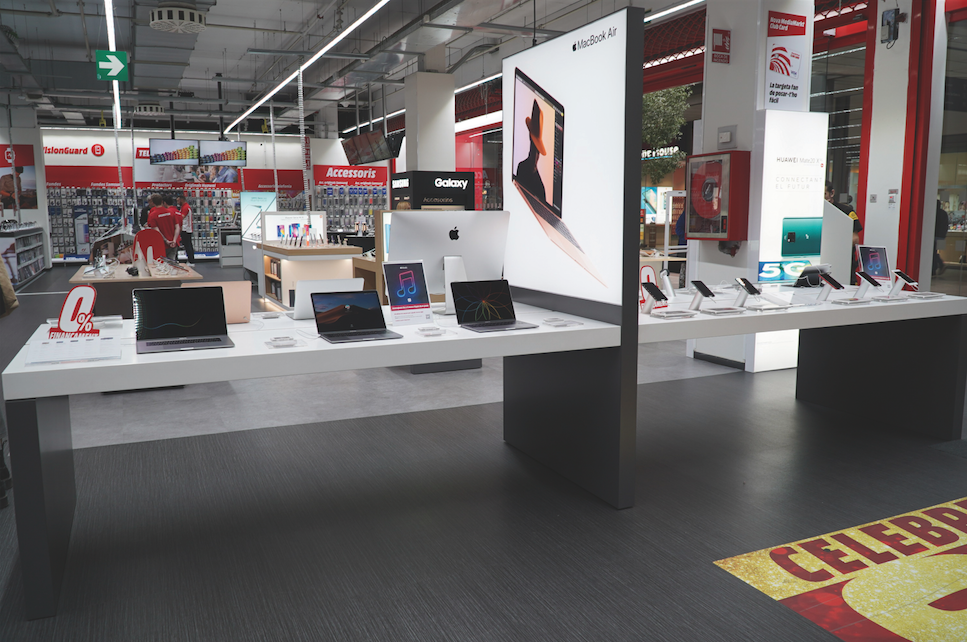
Moreover, by searching for innovative ways to add value to the products their partners are supplying, MediaMarkt Iberia helps to ensure these relationships endure. “The best way to add value to the product is to create a solution, not only with the product, but also with the real needs of the customer,” he says.
“For example, you could sell just a smartphone, but I think we have a commitment to the customer to not only sell the product, but also sell screen protection. Because in the majority of cases, at least once in our lives, we’ve broken our smartphone. If we are selling only the smartphone, we are not doing a good job regarding customer satisfaction.
“I think those are the two ways of working with suppliers to create good relationships: adding value and doing a real forecast – fulfilling this forecast and having solutions for the products that we are buying from suppliers.”
Earlier this year, MediaMarkt Iberia created a trade marketing department to give its suppliers greater transparency. “It’s important for the supplier in this digital world that we are committed to giving them visibility on our website, because we have a lot of traffic there – seven million hits a month,” Alberto points out.
Our aim is to become one of the top 10 places to work in Spain by 2025.
In return for being a good partner, MediaMarkt is asking its suppliers to develop more sustainable, green products, which in turn will help the company fulfil its goal to leave a positive legacy.
“I think in the future, a good relationship with suppliers will always have this kind of evolution, moving from the classic product to an ecological product in order to save the planet and to contribute to our environment,” he says.
Because customer convenience is key, Alberto regards logistics suppliers as among the most important to MediaMarkt Iberia’s success; the company depends on their services to get customers the products they need.
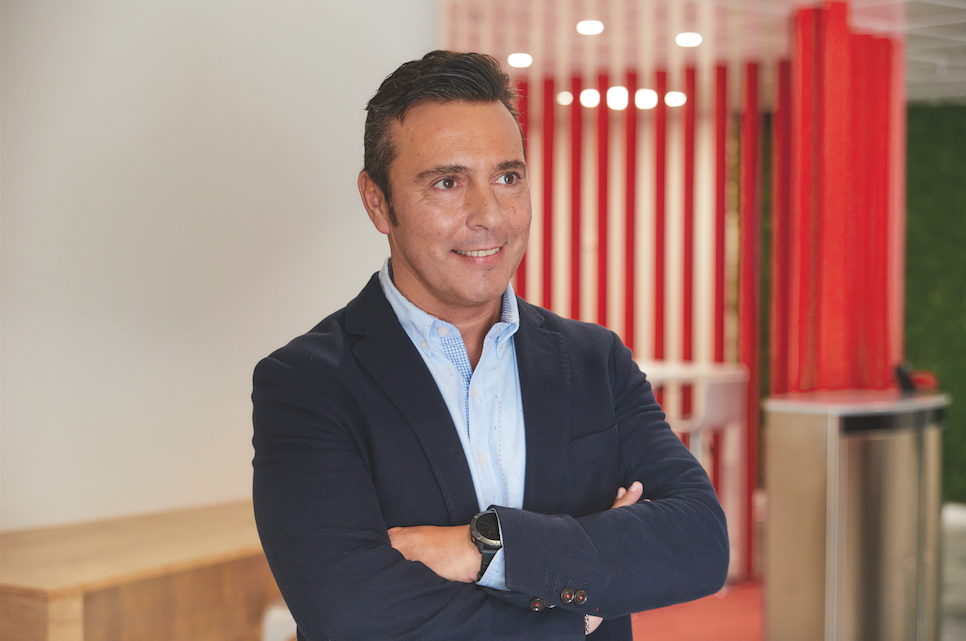
To reflect the essential nature of this role, the company has started offering logistics suppliers a new type of contract – one that incentivises partners to help make customers happy. “If they are helping us to increase customer satisfaction, they will receive a bonus,” he says.
“It’s important for us because we truly see these companies as partners. They are happy with the situation, and it makes it easier for them to understand that if the customers of MediaMarkt are happy, they are always going to win.”
All of these different approaches contribute to the same overarching goal: to build a vision alongside suppliers. “If they share our vision, it’s easier to work with them in the long-term. Sometimes, we live in the short-term in the business world, but we want to avoid that,” he asserts.
“It’s very important to build a long-term vision and long-term cooperation with suppliers because that is what we are doing with our customers at the same time. This is the main benefit: we are sharing our mission, we are sharing our approach to the customer and we are even sharing our approach to society and to the planet by developing more ecological products.”
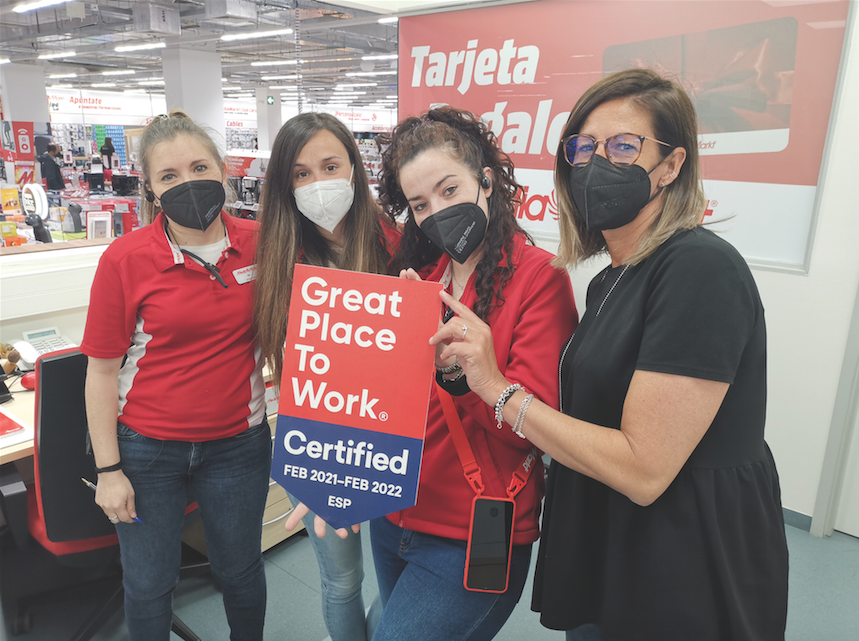
Besides suppliers, customers and external stakeholders, the other key group of people that Alberto keeps in mind in his day-to-day work are his employees. Even as the company undergoes a drastic shift to digital services, serving consumers in ways that no longer require meeting face to face, a dedicated and experienced workforce remains vital to MediaMarkt Iberia’s success.
“This company is based on its people. Before, we were a classic retailer. Now, we’re more and more becoming an omnichannel and digital company, but it’s always been based on the people,” he says.
“Our aim is to become one of the top 10 places to work in Spain by 2025. We are working on training people more and on talent retention, and looking for ways to improve the feedback culture among our employees. We are investing a lot of money in this kind of thing so that every day our people are going to work happier than the day before.”
Because he recognises how vital each employee is to the success of the company, Alberto personally interviews all the team members of MediaMarkt Iberia’s Barcelona headquarters. “Everyone is very grateful for this transformation because we are changing the mindset of the people. Every day, our team is happy to come to work,” he shares.
MediaMarkt Iberia was the first company in the group to begin using the employee Net Promoter Score, which adapts a common market research tool usually meant for customers to help identify ways to empower and inspire employees.
“It’s the same KPI that we use for our customers, but we also use it to make sure there is an ambience at work and people are in good spirits,” Alberto says. “This was also used as a blueprint for the rest of the group; they’re using this survey in order to make sure people are doing OK in their jobs.”
“My vision of the company – and I think this should be true not only in MediaMarkt, but also in any company – is this: we might be working to sell consumer electronics, but we should always try to do things with the people and for the people. This is my belief, and I work for that.”
Alberto will judge his own legacy as a leader based on how well he teaches those who come up behind him. “The most important lesson is to be proud of people and to be committed to developing better professionals,” he stresses. “I am fully motivated to do this. I think my main role in the company is to develop people’s expertise day in and day out.
“Maybe one day, these people will no longer be working at MediaMarkt, but in another company. For me, the most important thing is that these people might say to me, ‘Alberto, I learned a lot from you.’ This is why I wake up every morning. I’m going to work for the people, not for the products.”
Proudly supported by:
